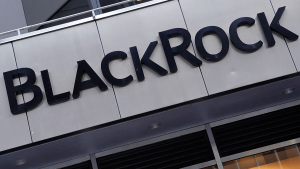Ripple welcomes MiCA regulation as US lawsuit highlights lack of clarity

Cryptocurrency payments service provider Ripple continues to see global adoption of its payment services despite a long-winded legal battle with the United States Securities and Exchange Commission (SEC) over its XRP (XRP) token.
In a wide-ranging interview with Cointelegraph at Money 20/20 in Amsterdam, Sendi Young, Ripple’s managing director for Europe and the United Kingdom, unpacked the firm’s growing remit worldwide, despite ongoing regulatory scrutiny in the United States.
Cryptocurrency exchanges and businesses have clashed with U.S. regulators over the past year, with a lack of regulatory clarity threatening to stifle innovation and adoption of blockchain-based services, systems, and cryptocurrencies.
Meanwhile, the European Union is well on its way to instituting a set of requirements and standards for the cryptocurrency industry across the continent after the long-awaited Markets in Crypto-Assets (MiCA) legislation was signed into law on May 31.
The divergence of regulatory perspectives in the U.S. and Europe is wide, Young told Cointelegraph, highlighting Ripple’s business growth outside of the U.S., which is in part due to progressive regulatory oversight in different markets:
“That lawsuit is very isolated to U.S. regulations or the lack of clarity and certainty thereof. It almost accentuates the kind of environment that we have in Europe and the United Kingdom.”
Young added that Ripple continues to foster private-public partnerships, and open dialogue with regulators and policymakers, with both parties educating each other as the industry develops:
“It does enable business to grow and innovation to happen. I would say we’re very fortunate in this sort of U.K., Europe environment, which is setting standards globally.”
Related: SEC is killing innovation in the United States — 1inch co-founder
In a European context, Young believes the MiCA regulatory framework will facilitate a “level playing field” that fosters healthy competition and innovation in the cryptocurrency space, while driving adoption among traditional finance players.
“I think that’s where we’ve seen much bigger mainstream take up and the real benefits of crypto’s utility being realized. Without clear regulation, that is impossible. I see that as the first step in getting more mainstream adoption.”
Young highlighted Ripple’s expanding basket of services aimed at plugging into an increasingly interconnected financial ecosystem. This is in part facilitated by crucial fiat on-ramps and off-ramps, as well as the development of central bank digital currencies (CBDCs) and stablecoins:
“It’s really a number of different currencies and CBDCs. They’re all going to be coexisting, and that kind of ability to interoperate, to go in and out, is going to be very important.”
Ripple’s ongoing lawsuit with the SEC took an interesting turn in June 2023, as eagerly awaited documents relating to a speech from former SEC corporate finance division director Bill Hinman highlighted contradictory viewpoints on classifying cryptocurrencies as securities.
Magazine: Peter McCormack’s Real Bedford Football Club puts Bitcoin on the map












